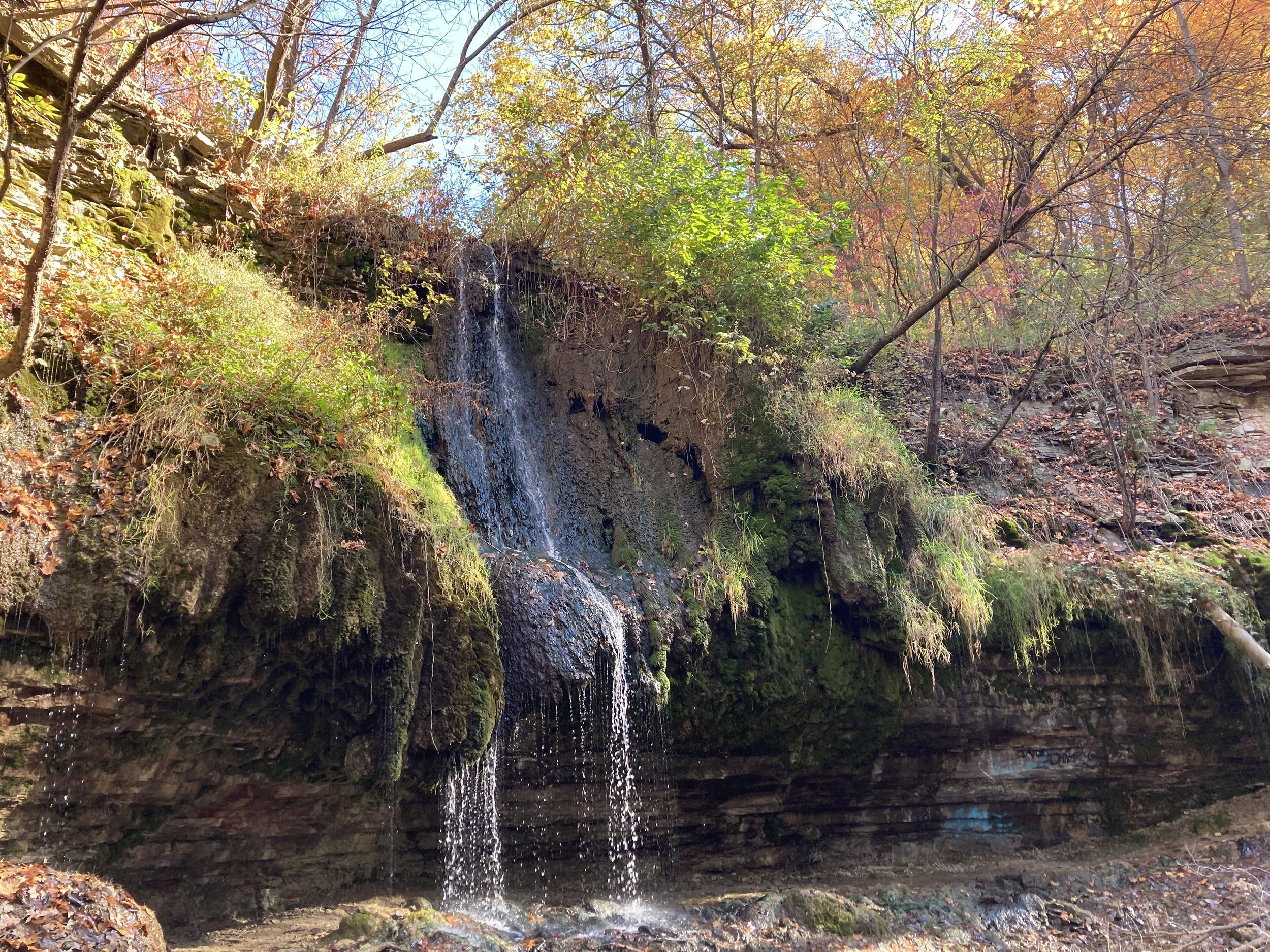
climate, environment, species, and earth work
Leigh Finke, Tree Lady
Signed / Enacted
MN HF7
SPONSOR: Electric utility renewable energy standard obligations modified, cost recovery provided, wind projects exempted from certificate of need proceedings, low-voltage transmission line included in solar energy generating system definition, local energy employment provisions added, and Public Utility Commission permit authority modified for electric generation facilities.
LEARN MORE
MN HF1656
AUTHOR: Energy grant programs established to enhance competitiveness of Minnesota entities in obtaining federal funding, account created, report required, and money appropriated.
In The House
MN HF2388
A bill for an act relating to natural resources; requiring the transfer of Upper Sioux Agency State Park; requiring a report.
AUTHOR
MN HF2747
This bill is concerned with the allocation of funds for the Solar for Schools program in Minnesota. It institutes amendments to existing Minnesota Statutes, specifically section 216C.376, subdivision 5. The bill stipulates annual financial fund withholdings by public utility companies for this program: $8,000,000 in 2022, $4,300,000 in 2023, and $8,000,000 in both 2024 and 2025. The withheld money is to be used for financial assistance provided by the program and any unspent money by June 30, 2027, is reassigned to the renewable development account. Additionally, the utilities retain the renewable energy credits from any solar energy systems installed. Appropriations from the general fund to assist schools in purchasing and installing solar energy systems are confirmed in amounts corresponding to the utility withholdings and are valid until June 30, 2028. The bill becomes effective the day after final enactment.
SPONSOR
MN HF2831
This bill aims to establish an Emerald Ash Borer Response Grant Program in response to the epidemic of the invasive Emerald Ash Borer insect which threatens the natural environment of ash trees in Minnesota. The bill seeks to allocate funds to assist local units of government in disposing of the infected ash trees and to safeguard biomass energy infrastructure that is crucial for the response to the epidemic. The grant funding would also support the processing of removed ash trees into biomass fuel. The bill also proposes the classification of biomass energy facilities as critical infrastructure. In addition to this, the bill includes the necessary financial appropriations for the program to be implemented.
SPONSOR
MN HF3019
This bill aims to establish an Emerald Ash Borer Response Grant Program in response to the epidemic of the invasive Emerald Ash Borer insect which threatens the natural environment of ash trees in Minnesota. The bill seeks to allocate funds to assist local units of government in disposing of the infected ash trees and to safeguard biomass energy infrastructure that is crucial for the response to the epidemic. The grant funding would also support the processing of removed ash trees into biomass fuel. The bill also proposes the classification of biomass energy facilities as critical infrastructure. In addition to this, the bill includes the necessary financial appropriations for the program to be implemented.
SPONSOR
MN HF3457
This bill relates to establishing a deadline for state agencies to issue permits for large electric power facilities that have been granted a preliminary site or route permit. Once this primary permit is issued, state agencies are required to make a final decision and issue any necessary additional permits within 60 days. There are a few exceptions, such as if federal laws that conflict with this deadline or if the permit application is incomplete, the state agency must notify the applicant, in writing, about the missing information within ten days. The applicant can also agree to extend the 60-day period. The bill amends section 216E.10, subdivision 2 of the Minnesota Statutes 2023 Supplement. The bill becomes effective the day following its final enactment and applies to projects issued a site or route permit from that date onwards.
AUTHOR
MN HF3461
This bill addresses the nature and classification of certain data linked with the forest industry in Minnesota. It allows for the collection, receipt, and maintenance of voluntary answers from forest industry businesses on questionnaires or surveys by the Department of Natural Resources. Topics covered could include timber resource consumption, origin of timber resources, cost of timber, forest industry product output, and production costs. This information is considered private data on individuals or nonpublic data if it does not concern individuals. However, any data not specified in these categories, as well as summary data compiled by the department, are deemed public. The bill also clarifies that data from bidders on state timber do not fall under this legislation.
AUTHOR
MN HF3577
This bill establishes the Packaging Waste and Cost Reduction Act in Minnesota. This law mandates that manufacturers create a statewide plan for reducing the waste of packaging and paper products. Under this law, producers of these materials must establish non-profit corporations, known as Producer Responsibility Organizations, that deal with the reuse, recycling, or composting of waste materials. Producers are defined as any individuals or organizations that sell, offer for sale, distribute or use these materials within or into the state. They are required to finance and implement these programs, encouraging redesign of packaging to reduce environmental impact and human health hazards. The bill defines several terms, including Advisory Board, Collection Rate, Compostable material, and many more. It provides a clear roadmap for how these corporations will operate, including rules for reporting and a schedule for program implementation. Lastly, the bill also provides compensation for board members, guidelines for filling vacancies, and rules regarding conflicts of interest for board members, indicating it is designed to ensure legal compliance and ethical conduct from all parties involved.
AUTHOR
MN HF3617
This bill modifies the use of the Critical Habitat Private Sector Matching Account, a fund established to enhance the natural resources in Minnesota. The bill allows the Commissioner of Natural Resources to accept financial contributions and pledges to the account, contingent on an appropriation. The account's balance and the amount of pledges for the next two years will be included in every biannual budget request. The bill also details how the money in the account can be used, primarily for land acquisition or restoration. Depending on the source of the revenue, funds can be used for specific areas such as acquiring land depicted on specific license plates, nongame wildlife management, aquatic management area purposes, or even transferred to the Board of Water and Soil Resources for grants related to bees and other pollinators. Moreover, the bill also mandates a biannual report from the Commissioner of Natural Resources, detailing the expenditure from the matching account and the nongame wildlife management account, submitted to various legislative committees and their chairs and ranking minority members.
AUTHOR
MN HF3704
This bill pertains to energy and the submission of a plan to the Public Utilities Commission regarding the implementation of grid enhancing technologies to increase electricity transmission capacity. The plan involves identifying regions with congestion, estimating the frequency and cost of congestion, evaluating the feasibility and cost of installing grid enhancing technologies, analyzing cost-effectiveness, proposing an implementation plan, and explaining the current line rating methodology. Grid enhancing technologies, such as dynamic line rating, advanced power flow controllers, and topology optimization, are hardware or software that increase the capacity of a high-voltage transmission line or redirect electricity from congested to uncongested lines while maintaining safety standards. The bill also outlines provisions for cost recovery for investments made or expenses incurred by a public utility to administer and implement a grid enhancing technologies plan.
AUTHOR
MN HF3738
This bill proposes amendments relating to natural resources in Minnesota, specifically, establishing a grant program for community tree-planting efforts. The bill details the funding and terms for these grants, prioritizing areas that have significant public safety concerns due to ash trees and locations that have certain demographic characteristics, such as a high percentage of residents living below the poverty thresholds. The bill appropriates $40,000,000 from the bond proceeds fund to the commissioner of natural resources for these tree-planting grants. Technical terms: 1. "Shade tree": A woody perennial planted primarily for aesthetic or environmental purposes with minimal residual timber value. 2. "Bond proceeds fund": Money raised by the state through the sale of bonds, which is used for financing various projects. 3. "Federal poverty thresholds": The minimum income level used to determine a family's or individual's poverty status. 4. "Social vulnerability index": A measure determined by the CDC (Centers for Disease Control and Prevention) to assess a community's vulnerability to external stresses on human health.
AUTHOR

